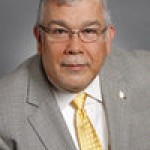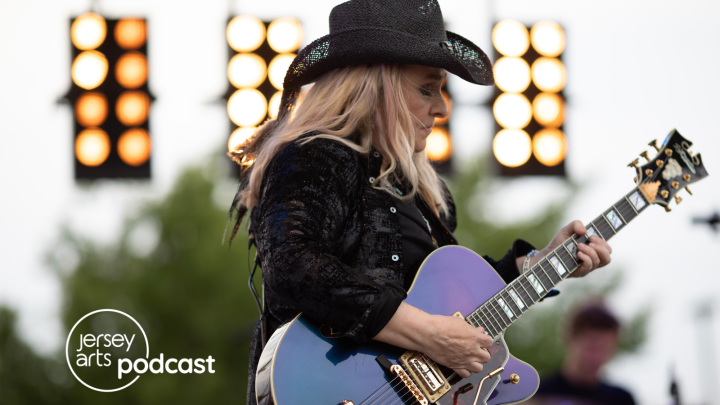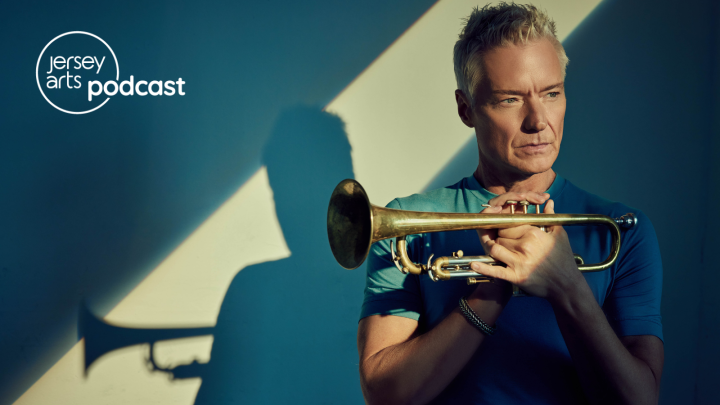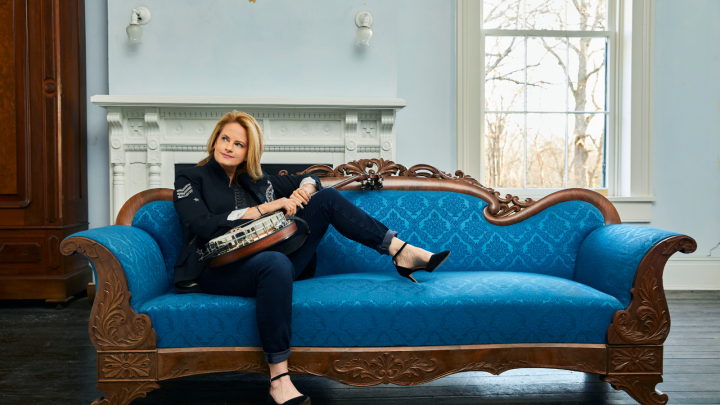Poetry and jazz, sans the bongos: PoemJazz with Robert Pinsky & Friends
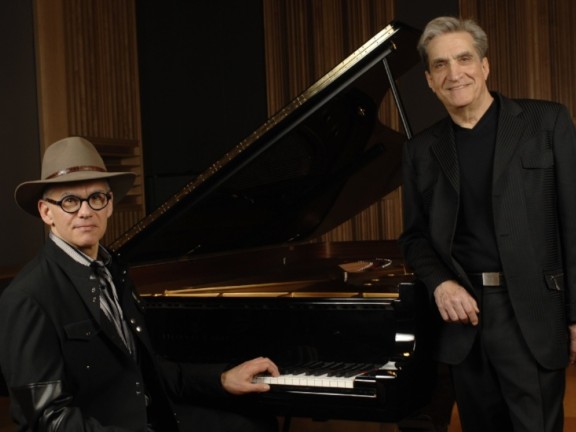
A poem is something that occurs, a poem takes place, in a reader’s voice. ~ Robert Pinsky

It’s one of the ineradicable clichés of American popular culture, dating back to the early 1960s when Maynard G. Krebs—the resident beatnik on the CBS sitcom “The Many Loves of Dobie Gillis”—would pick up his bongos and declaim far-out verse. You know. The poetry-and-jazz thing.
Robert Pinsky, poet laureate of the United States from 1997-2000, wants people to know that’s not what PoemJazz is about. Not even close. Launched several years ago, PoemJazz showcases the music of words and the language of jazz improvisation, each supporting and illuminating the other. It’s a conversation, Pinsky has said, presenting “speech with its own poetic melody and rhythm, in conversation with melody and rhythm in the music … a conversation between the sounds of poetry and music.”
One of America’s most celebrated writers, Pinsky will be returning to his home state Feb. 15 for a PoemJazz evening at Monmouth University, just up the road from the city of Long Branch where he grew up. There won’t be any bongos. Promise. Not even a saxophone—an instrument Pinsky has been playing since he was a student at Long Branch High School, where he was voted “Most Musical Boy.” Instead, Pinsky will be joined by New York City-based jazz pros Ben Allison (double bass) and Steve Cardenas (guitar).
Born in 1940, Pinsky has enjoyed a notably successful career as a poet, translator, critic and teacher. Educated at Rutgers and Stanford, he teaches in the graduate writing program at Boston University and serves as poetry editor for Slate. He has often said that he turned to writing when he accepted early on that he would never be the musician he aspired to be. Music’s loss was literature’s gain.
In his life and his work, Pinsky moves easily across the boundaries that are thought to separate the worlds of culture. His translation of Dante’s “Inferno” won high praise. So did his guest appearance on Fox’s animated sitcom “The Simpsons,” a rarity for a member of the American Academy of Arts and Letters. Pinsky’s Tanner Lectures at Princeton University were published as “Democracy, Culture and the Voice of Poetry.” In 2010 he shared the stage at Fairleigh Dickinson with that other guy from the Jersey Shore, Bruce Springsteen. Springsteen read some of Pinsky’s poems; Pinsky sang background on a Springsteen song. They discovered they had both been born in Long Branch Hospital. They both acknowledged Allen Ginsberg – born in Newark, raised in Paterson – as an artistic influence.
Pinsky’s ease with the role of “public poet” and his openness to contemporary society led him as poet laureate to be a gate-opener and not a gate-keeper. He introduced the enormously successful Favorite Poem Project, by which some 18,000 Americans -- from all walks of life, across the generations, from every state – shared their favorite poems. The anthology “Americans' Favorite Poems” is in its 18th printing. The project included the production of 50 short videos showcasing individuals reading and speaking about poems they love. The videos have been a regular feature on PBS's “NewsHour with Jim Lehrer” and are a permanent part of the Library of Congress archive of recorded poetry and literature.
Jersey Arts’ Michael Redmond shared the following exchange with Pinsky via email:
Jersey Arts: What's it like to come back to the Jersey Shore? What do you miss from past decades; what impresses you now? Have you had any news regarding the impact of Hurricane Sandy on your haunts of yore?
Robert Pinsky: Even before Hurricane Sandy, I felt some grief every time I returned to Long Branch, along with the pleasure. The Boardwalk in its heyday, the merry-go-round where my parents courted, the thriving downtown with Townley's Hardware and Nat's Jeweler's and Arnold's Restaurant, the City Bakery, Woolley's, Sam & Lou's, my grandfather's Broadway Tavern . . . it's a natural part of life that things change, but it's also natural that we who remember what was grieve for it.
My aunt Dorothy Wright lived in the same house on Delaware Avenue, in West Long Branch, from when I was a small child until a few weeks ago, when she moved to California. During Sandy, her neighbor's shed flew over the fence between their houses, and bounced around in the back yard until the police came and anchored it.
Maybe the most impressive new thing is Monmouth University. Back when it was Monmouth Junior College, it was strictly a night school that met its classes in Long Branch High School. The athletic team was called "The Night Hawks." Now, it's a thriving university with an impressive campus and a national reputation.
JA: Would you express some thoughts on the process that goes into these collaborations? Do you rehearse, or do you go free-form? How is this similar to/unlike the consultations you've done with writers?
RP: It's exactly the way jazz musicians work together: some preparation, a lot of common knowledge, and very intense listening to one another. It is musical. The musicians and I always speak of "playing" together: They and I treat my voice as a horn. I work with them as a horn player – not as an actor. It is like my experience playing music – in a way, exactly like it, except that I think my musicianship saying poems is superior to what I ever could do with the saxophone.
Ben and Steve will not be saying their poems and I will not be playing my horn. We'll try to stick to things we are good at.
JA: You've written the libretto for Todd Machover’s opera “Death and the Powers: A Robot Pageant.” A while back, New Jersey composer David Sampson set a number of your poems in “Jersey Rain,” for baritone, chorus and orchestra, and you attended the premiere in Morristown. What is it like to hear your words come back to you as "mediated" through another artist, another medium?
RP: It's thrilling – recently the composer Ezra Laderman has set a lot of my work, and hearing it performed, as with the opera and David’s "Jersey Rain," is a great feeling. The feeling of working with musicians like Ben and Steve, or with Laurence Hobgood on our PoemJazz CD, is completely different: working with the musicians in performance … well, as I say, it's playing music together. Both feelings are wonderful, and they are quite different.
JA: Is there life after performing with Bruce Springsteen? Who's left on your dream list for sharing a stage?

RP: It was great working with Bruce, and with another friend, the brilliant young singer-songwriter Josh Ritter. But I've also been blessed in the jazz musicians I've worked with: Ben, Steve, Laurence and also Vijay Iyer, Bobby Bradford, Rakalam Bob Moses, Andrew Cyrille. The other day Laurence and I played the Poisson Rouge in New York -- which is the old Village Gate! To be performing there was beyond the dreams I had in my teens and twenties. I'm very, very fortunate in this way.
JA: What are you working on right now?
RP: My play, a free adaptation of Schiller's “Wallenstein,” is in rehearsal at the Shakepeare Theatre in Washington, D.C. They will be doing it in repertory with Shakespeare's “Coriolanus” this March and April: two plays about generals -- they are calling it "Heroes and Traitors." Michael Kahn, the director, has invited me to rehearsals and re-writes this week.
I've just edited the 25th Anniversary “Best of the Best” anthology for Scribner's “Best American Poetry” series; that appears this spring, and next fall, Norton will publish my “Singing School: Learning to Write (and Read) Poetry by Studying with the Masters.”
And, of course, there are new poems coming along, I hope for a new volume in a couple of years.
The Performing Arts Series at Monmouth University, West Long Branch, presents PoemJazz, featuring Robert Pinsky with Ben Allison and Steve Cardenas on Friday, Feb. 15, at 7:30 p.m. in Pollak Theatre. Tickets are $20, 732-263-6889 or www.monmouth.edu/arts_events/performingarts.asp. Monmouth University is located at 400 Cedar Ave., West Long Branch 07764-1898.
Robert Pinsky’s poems online: www.poetryfoundation.org/bio/robert-pinsky#about
www.poemhunter.com/robert-pinsky/poems/ | Robert Pinsky writes about poetry and music in “The Sounds Poems Make” (May 2011), | www.slate.com/articles/arts/culturebox/2011/05/the_sounds_poems_make.html
New from Robert Pinsky: Selected Poems (Farrar, Straus and Giroux, 2011, 224 pp, ISBN 978-0374258603)
